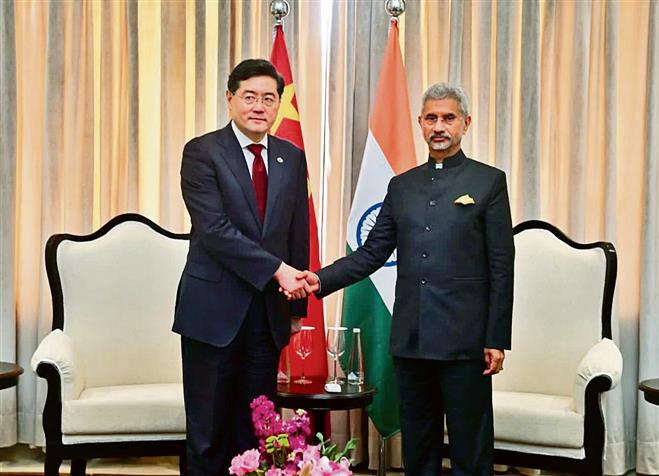Elusive consensus : On transparency and the state of India-China ties
The Government of India must transparently lay out the state of relations with China
India and China have once again appeared to walk away from their latest high-level engagement with sharply different diagnoses of what ails their relations. During a meeting earlier this week in Johannesburg between National Security Adviser Ajit Doval and top Chinese diplomat and Politburo member Wang Yi (he heads the Communist Party’s Central Foreign Affairs Commission and was re-appointed Foreign Minister after the sudden removal of his successor Qin Gang), Mr. Doval highlighted India’s concerns about the situation along the Line of Actual Control (LAC). China’s actions, he said, had “ eroded ” the “public and political basis” of ties. He also stressed the need to “... restore peace and tranquillity in the border areas, so as to remove impediments to normalcy in bilateral relations”. The Chinese readout, in contrast, emphasised the big picture, calling for the “early” return of ties “to the track of healthy and stable development”. It also called on both sides to follow “an important consensus ” that was, it revealed, reached by Prime Minister Narendra Modi and President Xi in Bali last year to stabilise ties. This claimed “Bali consensus” had not been previously disclosed by either side. The Ministry of External Affairs, which stated they only exchanged courtesies, has subsequently conceded that they also discussed the “need to stabilize bilateral relations”.
Whether or not the leaders exchanged more than pleasantries in Bali, the contrasting claims from the latest meeting have only reinforced the need for the Modi government to more transparently lay out the state of relations with China, and especially along the border. Opacity and defensiveness have marked the government’s responses since tensions began in April 2020 to any questions about the border or its broader approach to China, which appears increasingly rife with contradictions. Only this week, the Minister of State for Electronics and IT, Rajeev Chandrasekhar, told a British newspaper that the government welcomed investment from China. Trade with China boomed to record levels in 2020 and 2021 led by imports of Chinese machinery, while at the same time the government has banned more than 200 Chinese apps, including TikTok. Meanwhile, after 18 rounds of talks, there remains little clarity on the LAC situation and the continuing ingresses by China in Demchok and Depsang, the last two remaining friction points. While the arrangements to set up buffer zones in five other points are welcome, the terms of the arrangements and withdrawals by both sides also remain shrouded in secrecy. As both sides continue to find a way to stabilise ties and restore peace, the public should be kept informed. Relations with India’s biggest neighbour are far too important to be conducted in the shadows.
